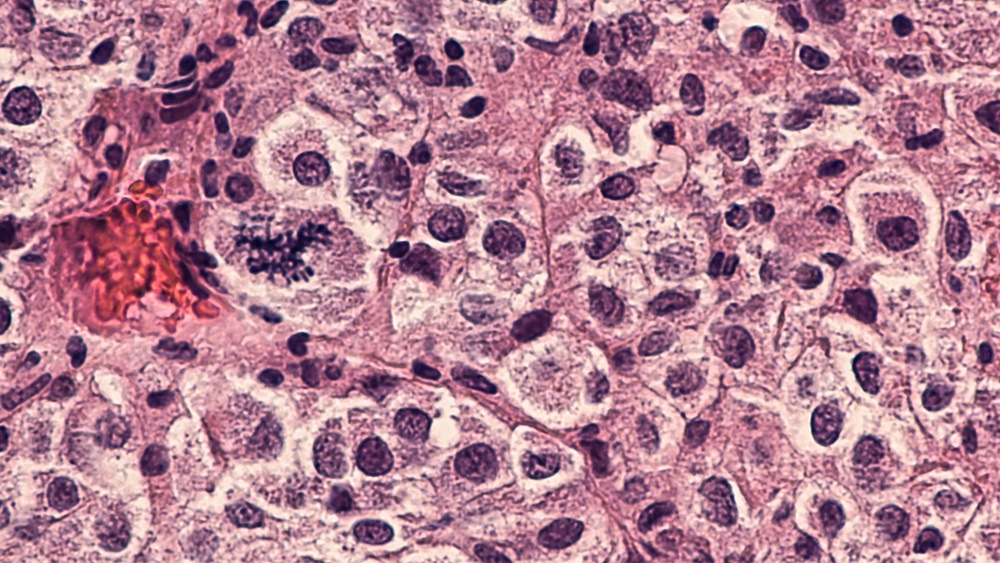A pre-clinical study for melanoma and neuroblastoma shows that a customized tumor cell vaccine technique that targets Myc oncogenes coupled with checkpoint therapy produces an active immune response that bypasses antigen selection and immune privilege.
 Image Credit: David A. Litman/Shutterstock.com
Image Credit: David A. Litman/Shutterstock.com
According to researchers at Children’s National Hospital, the neuroblastoma model demonstrated a 75% cure rate with long-term survival.
Myc is a class of genes including regulator genes and proto-oncogenes that aid in the regulation of cell growth and differentiation in the body. Myc can stimulate cancer cell growth when it mutates to an oncogene. In 70% of all human cancers, Myc oncogenes are deregulated.
According to this study, which was published in The Journal of Immunotherapy of Cancer, Myc mutations, such as c-MYC and MYCN amplification, are linked with host immune suppression in melanoma and neuroblastoma tumors.
“Paradoxically, from an immunotherapeutic perspective, a lack of an immune response may offer an opportunity to target those tumors [melanoma and neuroblastoma] that would be less resistant to host immunity assuming potent cellular immunity can be generated against the tumor,” explained Wu et al.
The results indicate that two small molecule inhibitors, I-BET726 and JQ1, inhibit Myc’s unregulated cellular proliferation and boost the immune response against tumor cells, allowing them to be used as a tumor cell vaccine.
In the future, a combination of cell vaccine and existing therapies that suppress immune responses, also called checkpoint inhibitor therapy, may help inform a customized therapeutic tumor vaccine.
The work is pre-clinical and although we have seen excellent responses in these models, we need to determine whether this will also be effective in humans. For this purpose we have started laboratory testing in human cells. Our eventual hope is to translate these basic science findings to clinical application.”
Xiaofang Wu, Study Lead Author and Staff Scientist III, Pediatric Surgical Innovation, Sheikh Zayed Institute
Given the poor results among patients with high-risk or advanced diseases that have received conventional chemotherapy, there is a need for more efficacious treatments for neuroblastoma and melanoma.
Although tumor vaccines and immune-based therapies have been developed, c-MYC and MYCN appear to shield the tumor from an immune response, so they often evade treatment.
The researchers warned that although both models stimulated potent immunity, the findings differed, implying that this novel therapeutic vaccine is more effective in the mouse neuroblastoma model compared to the melanoma model. Despite a greater initial tumor challenge, the neuroblastoma model resulted in a remarkable 75% cure and dramatically improved long-term survival.
“In contrast, the melanoma tumor gained adaptive resistance that is associated with an imbalance between tumor cell growth and cytotoxic killing and thus the vaccine failed to eradicate the tumor. Despite potent immune effects from the vaccine, other immunosuppressive molecules will need to be targeted to see the full effects of the vaccine protocol in the melanoma model,” noted Wu et al.
The research suggests a framework that could be used for therapeutic patient-specific vaccines for MYCN-amplified neuroblastoma tumors that are resistant to current therapies.
To determine the precise function of c-Myc and MYCN amplification and its relationship to immune suppression, the team investigated 21 human neuroblastoma samples, the majority of which had metastatic disease, and 324 melanoma samples, only 30 of which were classified as MYC amplified.
The team combined checkpoint inhibitors with pharmacologic molecules—I-BET726 and JQ1—to target Myc oncogenes in mouse neuroblastoma and melanoma models, on the basis of the oncogene’s ability to inhibit the immune response.
They also looked at how various doses, incubation times, and drug combinations affected tumor cell differentiation, proliferation, and gene alteration.
Source:
Journal reference:
Wu, X., et al. (2021) MYC oncogene is associated with suppression of tumor immunity and targeting Myc induces tumor cell immunogenicity for therapeutic whole cell vaccination. The Journal for Immunotherapy of Cancer. doi.org/10.1136/jitc-2020-001388.